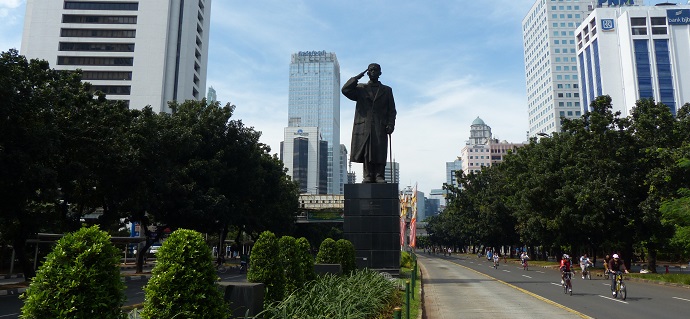Indonesia's Loan Growth, Financial Literacy and US Rate Hike
Global credit rating agency Moody's Investors Service expects loan growth in Indonesia to continue to slow in 2016 as sluggish economic growth curtails corporate and individual demand for funding in Southeast Asia's largest economy. Meanwhile, a survey conducted by Standard & Poor's shows that the majority of Indonesians are financially illiterate, implying that the government needs to increase efforts to educate its population. Lastly, Asian Development Bank President Takehiko Nakao is convinced that a US interest rate hike will not cause a new financial crisis in Asia. Lets zoom in a bit further on these three subjects.
Moody's Investors Service: Loan Growth Indonesia Remains Bleak in 2016
The US-based credit rating agency does not agree with recent credit growth forecasts unveiled by Indonesia's central bank (Bank Indonesia) and the Financial Services Authority (OJK). Bank Indonesia and the OJK target loan growth in Indonesia at 12 to 14 percent year-on-year (y/y) in 2016, slightly up from this year's estimated growth of 11 to 13 percent (y/y). Srikanth Vadlamani, Vice President at Moody's, believes this view is too optimistic given the expected continuation of sluggish economic growth.
He also expects the rise in Indonesia's bad loans to persist in 2016, albeit at a slower pace compared to this year. However, weaker asset quality will not disturb Indonesian banks' financial conditions too much as these banks are expected to have the capability and capital buffers to cope with this situation.
According to the latest data from Bank Indonesia, total outstanding loans in Indonesia reached IDR 3,99 trillion (approx. USD $289 billion) at the end of September 2015, up 11 percent from total outstanding loans in the same period last year. Meanwhile, Indonesia's non-performing loans rose 2.7 percent from 2.3 percent in September 2014.

Standard & Poor's: Majority of Indonesians are Financially Illiterate
A recent survey conducted by US-based Standard & Poor's indicates that most Indonesians - around 68 percent - are financially illiterate. In the survey, 68 percent of Indonesian respondents failed to correctly answer basic questions about inflation, interest rates, and risk diversification. However, S&P does emphasize that financial illiteracy is a global problem and therefore Indonesia does not stand alone in this. In fact, the survey shows that 33 percent of adults - worldwide - are financially literate, meaning that Indonesia scores slightly below the global average (Indonesia ranks 88 out of 143 countries in financial literacy). In developed nations (such as Australia, United Kingdom, the Netherlands) the financial literacy rate stands at an average of 65 percent, according to the survey.
The report emphasizes that better financial literacy can help the people to avoid debts, make better job plans and save for their retirement.
Asian Development Bank: No New Financial Crisis in Asia
Asian Development Bank (ADB) President Takehiko Nakao rejects speculation that the looming US interest rate hike in December 2015 - which would be the first in almost a decade - can cause a new financial crisis in Asia such as the one in 1997-1998. Although tighter monetary policy in the USA will most likely trigger capital outflows from Asia's emerging markets, the region's financial system have strengthened since the 1990s making it unlikely that a new crisis will unfold. Nakao said the ADB is ready to provide funding to those countries that are vulnerable to capital outflows.
Indonesia is considered one of the most vulnerable countries to a Fed Fund Rate hike as it is still plagued by a wide current account deficit making its currency fragile. Moreover, Indonesia has been negatively affected by China's economic slowdown (China being the largest trading partner of Indonesia) and the weak commodity prices (Indonesia is still heavily dependent on the export of commodities). At the Bloomberg ASEAN Business Summit in Bangkok, Indonesian Finance Minister Bambang Brodjonegoro stated Indonesia +6 percentage point growth several years ago was unsustainable as it was largely carried by the commodities boom. As such, the government is now focused on transforming the economy from commodity-driven to manufacturing-driven. In recent months the Indonesian government has unveiled six economic policy packages that place priority on improving the attractiveness of Indonesia's investment climate. This should boost investment in the country's manufacturing sector. A seventh policy package is expected to be released today (04/12).
The US Federal Reserve is scheduled to meet on 15-16 December.
